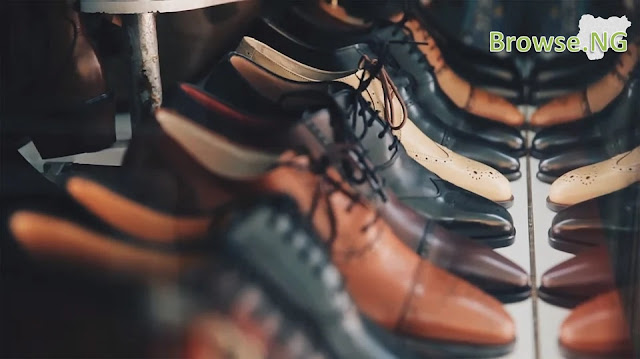Shoe Making For Beginners: Guide To Making ₦250k Monthly
November 15, 2021A bigger percentage of the shoes we use in Nigeria is imported. This article is for those trying to learn how to start a shoemaking business in Nigeria. In subsequent times, I'll be writing on how to start a bag business in Nigeria.
Introduction To Shoemaking In Nigeria: How To Get Started
When you talk about shoes and other fashion wears, the first things that come to people's minds are the foreign-made ones.
In fact, a majority of the shoes we use here are foreign, and people rarely buy Aba made shoes if they even know where they are made.
Even some of the people who make shoes in Nigeria have begun giving them foreign tags just to sell you, know because Nigerians have this stereotype about foreign-made shoes being more superior to the local ones.
In fact, a majority of the shoes we use here are foreign, and people rarely buy Aba made shoes if they even know where they are made.
Even some of the people who make shoes in Nigeria have begun giving them foreign tags just to sell you, know because Nigerians have this stereotype about foreign-made shoes being more superior to the local ones.
Steps To Starting Shoemaking Business
Some of the steps to put in place before you begin manufacturing shoes include:-
• Choose A Niche
The first step to a successful shoemaking business is to know which type of stuff you want to be producing.
Are they going to be leather products? Will they be sandals, palms, cover shoes, pastor shoes (sarcasm intended) or which ones? Do you think you should go into male, female or both products?
Are they going to be leather products? Will they be sandals, palms, cover shoes, pastor shoes (sarcasm intended) or which ones? Do you think you should go into male, female or both products?
The area you reside in will also play a great role in this.
• Go for the training
After choosing a niche, you'll know what to train on. In asmuch, as there may be online tutorials, possibly YouTube and other platforms, going to a professional will be the better option.
Training completely may take you up to 6 months, and there are a lot of professionals all over the country you can pay and learn from.
• Raise capital
After choosing a niche and training on it, it's time to raise capital. You'll need money to pay the rent for a shop or place to stay, buy equipment, pimp the place you'll stay in, make advert boards and many other things.
I can't estimate how much it'll take, but the person you learnt from will be able to help make estimates and also direct you on how to purchase the items.
• Purchase equipment
Sourcing and purchasing of the equipment can be done locally, as the case may be.
Some of the things you'll need include:
- Sewing machine
- Filing machine
- Generator
- Shoe mould
- Shoe former
- Papers
- Punches
- Gum
- Leather
- Thread
- Scissors
- Knife
- Hammer
- Sandpaper
You can also search for trusted dealers on platforms like Konga and purchase from them.
• Write a business plan
The next is to write a business plan. It will help you know what to invest in and what you'll be expecting.
In most cases I suggest you make your business plan before even making any investments. Sometimes you'll need it to get a loan or an investor.
• Get a shop
There are different prices for different sizes of shops, depending on the locality. You might not need to get a place in a mall as a beginner, and in fact a small shop will do just the magic.
It needs to be in a central location so people just passing can look at it and buzz in to place orders.
• Do your business registrations
You'll need to register your business with CAC to secure your brand name. There are a lot of ways to choose names, but something short and fashionable would be cool.
Also, you'll be able to get a corporate account with the name you choose for your business.
• Promotions
You can make a few products first, take good photos of them and use them for your marketing. Word of mouth will also do very well, and you can print complimentary cards.
• Work!
A few clients will begin to place orders, and business has just begun. With time you'll be able to recruit other students who you'll teach and they help you with delivering orders while making extra money from them.
Conclusion
Shoemaking is a very interesting business, and also very lucrative. If you deliver jobs nicely and on time, you'll be able to get yourself consistent customers and of course, they'll tell others about you.
Thanks a lot for reading along.
What do you think?


0 Comments